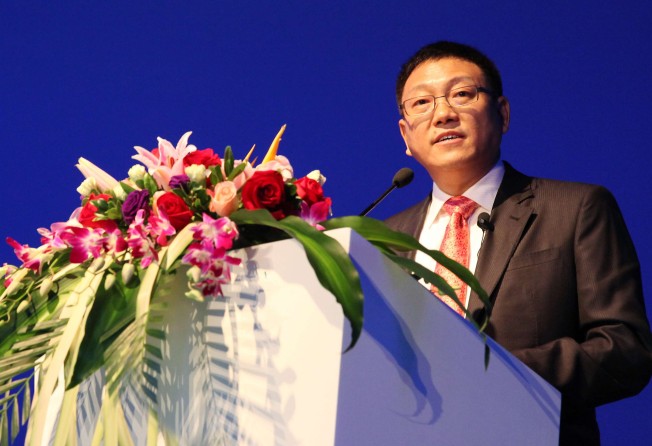Twists and turns in a bitter Chinese takeover battle
The fight between Digital China Holdings and GRG is one to watch

Guo Wei has always been a fighter.
After losing a tussle for the leadership of China’s computer giant Legend Holdings, he turned its small IT servicing department into an empire with profits of HK$900 million called Digital China Holdings within 10 years.
But just when he thought he was reaping the fruits of his labours, the 52-year-old found himself back on the battlefield, fending off with all his might a rival shareholder.
He has so far secured control, but not the hearts of minority shareholders.
For Guo, the timing cannot be worse.
Digital China has just sold for cash its major source of profit to a Shenzhen-listed company owned by
Guo himself at a negligible premium to its asset value.
The disposal has faced few regulatory hurdles because he acquired control of the A-share company in a separate deal.
Unsurprisingly, the new asset pushed the A shares up by 175 per cent, bringing Guo a 3.3 billion yuan profit on paper. Yet it has also locked up 2.2 billion yuan of his cash.
When its state-owned rival, GRG Banking, told investors it had spent HK$200 million for 8 per cent of Digital China and was prepared to fork up HK$2 billion more, Guo was running low on ammunition.
Digital China is a low-hanging cherry. It controls some software businesses that are buzzwords in China nowadays and one A-share company.
Chinese analysts estimated its value at more than HK$15 billion, more than twice its market capitalisation. A successful acquisition would be a big boost to GRG’s value.
Yet, Digital China has no major shareholder. Chairman Guo and a director control 6.57 and 5.38 per cent respectively.
By mid-May, GRG’s stake had increased to 11.08 per cent, making itself the largest shareholder.
Though GRG has made known its interest and Guangzhou media has been trumpeting its plan from as early as mid-March, Guo has done nothing to increase his stake.
He is not going to fight with money.
Instead, on Wednesday, Digital China said it was acquiring a Beijing office tower for 630 million yuan. It is paying with shares despite a cash holding of more than three billion yuan.
The shares are priced at a deep discount of more than 17 per cent to their five-day trading price. The unknown seller gets a 12.01 per cent stake, diluting GRG’s holding to 9.35 per cent.
The announcement was silent on the seller’s identity. Nor was the deal reported according to the statutory disclosure of interest.
Money Matters, however, found a Chinese conglomerate named Bestgrand Holdings claiming ownership of the building on its official website.
Bestgrand’s chairman Huang Shaokang was one of the founders of Legend, where Guo once worked. There is no proof of any link between Huang and Guo.
Neither is the justification convincing. Digital China called it an attractive investment and said it intended to hold it for office purposes.
Its name – Digital China Centre – is, however, telling. The 13-year-old tower has been housing many of its subsidiaries for decades. Its rental yield is at most 4.5 per cent, according to the company.
Why would an IT firm invest in such a property that would significantly dilute the interest of its shareholders? Guo had better explain.
In the meantime, the A-share company controlled by Guo said it would spend 500 million yuan on a stake in Digital China or two related companies in order to “strengthen its competitiveness and profitability”.
That would soak up 6 per cent of Digital China’s stake.
With the parties fighting tooth and nail, one would expect the price of the prey to shoot up. It is not.
Digital China’s price has in fact dived until the past few days, thanks to the piling up of short-sell orders.
The percentage of short-selling to its trading volume increased from about 15 per cent to more than 40 per cent.
Who has a holding big enough to loan to short-sellers is anyone’s guess.
If his or her intent is to force out GRG, that doesn’t seem to be working. It remains adamant over its plan.
With a public float of 67 per cent up for grabs, this is a battle that won’t stop to fascinate.